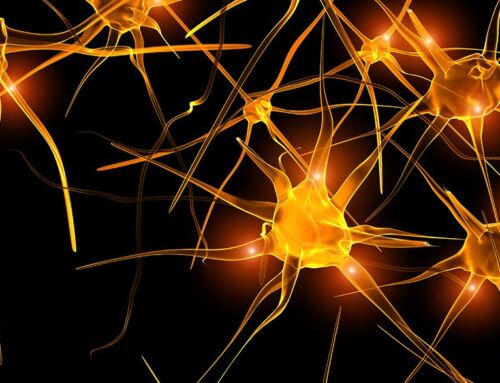In this week’s Walk & Talk Podcast, you are invited to eavesdrop on a chat between Langley Group duo, Sue and Tania, as they introduce the wonderful concept of keeping a ‘Ta-Da’ list; distinct from a ‘To-Do’ list.
Positive emotions are valuable for helping refuel our brains. If we are looking to stay motivated, we know positive emotions help us achieve our goals. Taking a little break from your To-Do list and referring to your Ta-List is the simple act of shifting your focus to activities that have a positive effect.
It is a great tool to propel our wellbeing into action and helps us prioritise happiness in our life. This uplifting practice involves guilt-free, bite-size activities that ensure we are continuously flourishing.
Research shows that positive emotions boost the neurochemical dopamine. Dopamine is one of the chemicals that enables the brain to perform at its best and gets us in the right state of mind to create healthy habits. The Ta-Da list can embed mindful practices over time and be a lot of fun in the process.
When we do activities and tasks we enjoy, we are more likely to think positively about the experience later. In turn, this inspires us to do it again, setting up an upward spiral of positive behaviour that helps us adopt a lifestyle change.

Barbara Fredrickson, a researcher and author of the Positivity Ratio, observed this effect, linking it with her Broaden and Build Theory. Positive emotions expand our thinking and the breadth of strategies we try, building our resources over time. They also counter the downward spiral of negative emotion if we are feeling stressed or lacking willpower.
Inspired by Barbara’s research, we love to create our own Ta-Da Lists—a list of daily actions we love and want to practice, ensuring ongoing positive changes in our lives.
Your regular To-Do List may already be full of things you know you should do. Some of these may feel motivating; some may not. Too often, our lists get clogged with things we never seem to get done, and we wonder why. When your To-Do list feels overwhelming, take a moment to cross off a quick Ta-Da list activity and notice how you feel more energised to return to the To-Dos!
Try incorporating activities you feel positive and enthused by and want to integrate into your everyday life. Focus on things that will boost positive emotions and wellbeing alongside your regular list of ‘must-do tasks. Aim to tick off one or more each day. We recommend aiming for three every day!
Here are some ideas for boosting positive emotions and keeping your brain healthy and well. You may have different Ta-Da’s, get creative and change it up each week; our brains like novelty.

Practice Gratitude
Gratitude is one of the most enduring practices to increase happiness and wellbeing.
Practising gratitude day to day makes us aware of the good things that happen. Studies show that when people write regularly about what they are grateful for, their mood, coping behaviour and even physical health improves. When we continue to appreciate positive changes in life, such as a new job, friendship or goal achieved, it counteracts hedonic adaption, the tendency to revert to previous happiness levels after the positive experience has passed.
One way to practice is to start a gratitude journal. You can also keep a mental note – be sure to do it mindfully and attach meaning to the activity. This practice trains your brain to notice and savour positive experiences that happen over time, increasing your positivity.
Simply write down the three best things that have happened to you in the day or three things you are grateful for. Research supports doing this activity once a week, though some people find this isn’t often enough. What is important is finding out what works for you. It won’t work if gratitude feels like a duty!
Use the opportunity to increase your appreciation for the people and things in your life. If journaling isn’t your thing, add a thank you card or email to your Ta-Da list or create weekly ‘post-it note’ reminders of some things you are thankful for – chocolate, sunshine, music, your pets…. The list goes on.
Purposeful Smiling
Smiling is one of the most immediate and natural ways to shift yourself and other people into a positive mood.
Our faces express our inner thoughts and feelings, even fleetingly. A genuine smile signals to other people that you are friendly and open, inviting them to connect. It triggers mirror neurons in both your brains, which allow you to feel empathy and sense what the other person is thinking or feeling.
Start the day on a positive note with a smile. You can do this by practising smiling at yourself in the mirror for 30 seconds. Make it fun. If it doesn’t feel right to start with, you will soon be laughing at yourself and feel better naturally. The muscles you use to smile will tell your brain you are happy. Smiling, like positive emotion, is contagious.
A physical ritual or visual reminder can help you learn a positive habit like smiling. Keep a note on your bathroom mirror or buy a bracelet or something that, when you see it, will remind you of your commitment to your positive behaviour. Add this simple smiling activity to your Ta-Da list, which you can do at home, in the car or during a trip to the office restroom. Hold it there long enough for the positive emotions (including laughing at yourself for grinning) kicks in. Smiling is a great one to practice alongside family and friends too!

The Wonder Woman Pose
Our brain and body are interlinked. If you can shift your body, you can trigger your brain to think and feel differently. That is why posture is important—it impacts your emotional state, changes the chemicals in your brain and thus the outcomes you can create.
Amy Cuddy studied how body language affects how others see us and even how we see ourselves. She showed how “power posing” can make us feel confident even if we don’t. For example, when people adopt a “Superhero Pose” before a job interview, they considerably increase their success chances. We give the same advice to people preparing for a presentation or simply as a daily ritual.
You can practice your Wonder Woman Pose by adding it to your Ta-Da list, standing hands on hips, chest out, head up, ready to save the world. No one needs to know you are doing it – simply try it out to give yourself a boost.
We know that the change in physiology sends a message to the brain that creates a sense of confidence and strength. Positive emotions flood the brain, which also helps you perform better that day. Dancing to an upbeat song can have a similar effect!
The HERO Effect
The impact of building resources around Psychological Capital for individuals and teams and the flow on to customer satisfaction give rise to improvement in bottom-line performance.
The components of Psychological Capital increase desired behaviours and activities at work – such as performance, productivity, and retention. They also decrease undesired behaviours at work – such as a reduction in sick leave and absentees.
It can help individuals to:
- Be engaged at work with high levels of wellbeing
- Have a sense of contribution, connection, and collaboration
- Be agile and intuitive to embrace innovation and change
- Show up as the best version of you
- Draw people – customers and employees to you and your team
So how can you cultivate psychological capital in your teams?


Random Act of Kindness
Acts of kindness send potent messages that connect us with others and give meaning to our daily lives. Kindness makes both giver and receiver happier. After all, humans are social beings and naturally enjoy being altruistic. Studies show that by counting the acts of kindness we perform for one week, we can achieve our subjective happiness. Kind acts give us positive stories to tell to help us and others savour happy times.
Go out of your way to help a stranger who has lost their keys. It may only take a few moments of your time; to the other person, it could make the difference between feeling on the verge of tears to feeling supported and energised. Practice kindness as part of your weekly Ta-Da list.
It’s incredible the positive connections and experiences that happen when kindness goes viral!
Stay Curious
You can’t always change your environment — yet you can nearly always be curious and aware wherever you are.
Being curious gives you the strength to be open and accepting of whatever is happening. You approach new experiences and events with mindful awareness — the positive and beautiful as well as the challenging. If you dial up your curiosity, it allows you to dial down anxiety.
Curiosity is a way of learning and stimulating your brain. When we take the time to be curious about the people around us, the less we are concerned about ourselves and the more compassion we feel toward others. You can add curiosity to your Ta-Da list by simply having a close look at something in nature, asking a colleague about their hobbies, trying different foods, or downloading a new song to your playlist.
Sense of Accomplishment
A list can help keep your focus where it should be, on what you have accomplished instead of what you haven’t yet done.

Along with this spark of self-satisfaction comes another significant side effect: encouragement to keep going and energy to handle other tasks. Doing this helps you build on positive emotions and give yourself a healthy reward.
A Ta-Da list doesn’t have an endpoint and is without pressure. You can add to it as often as you like. Unlike a traditional To-Do list, where your progress depends on how much you’ve achieved, your Ta-Da list is constantly evolving, celebratory and affirming in nature.
We hope we have inspired you to create your own Ta-Da List! A small yet powerful wellbeing tool.
Ready for more learning?
Tune in to our ‘Learn with Sue – Walk and Talk’ podcast. Throughout the series, Sue shares practical ideas from emotional intelligence, positive psychology, wellbeing, and neuroscience-based on science, research, and evidence. Sue also hosts expert discussions with exceptional individuals from around the world! There are new episodes released every Monday! Listen on Spotify or Apple Podcasts
The Langley Group 31-Day Wellbeing Journal contains inspirational quotes, tips, and prompts to help you build habits that will increase your wellbeing!
Our Inspire Action cards were created to facilitate self-reflection and discussion of strengths and emotions. They also contain inspirational quotes and actions to embed positive psychology practices.
To create a wellbeing culture in your workplace, discover user-friendly, comprehensive and solution-focused strategies with Work on Wellbeing assessments and reports.
To learn more, join Learn with Sue for eBooks on 7 Ways to Apply Positive Psychology, 10 Brain-Friendly Habits and How to Lead with the Brain at Work. Plus a range of tools to help yourself and others, including questionnaires, values cards, posters and more.






